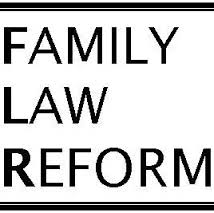THESE JUSTICES WERE BOUND BY THE DUE PROCESS CLAUSE

By thefitparentsrights
…and the “liberty” it protects includes more than the absence of physical restraint. (citations omitted). (Due Process Clause “protects individual liberty against ‘certain government actions regardless of the fairness of the procedures used to implement them’ ”) (quoting *720 Daniels v. Williams, 474 U.S. 327, 331, 106 S.Ct. 662, 665, 88 L.Ed.2d 662 (1986)). The Clause also provides heightened protection against government interference with certain fundamental rights and liberty interests. Reno v. Flores, 507 U.S. 292, 301-302, 113 S.Ct. 1439, 1446-1447, 123 L.Ed.2d 1 (1993); Casey, 505 U.S., at 851, 112 S.Ct., at 2806-2807. In a long line of cases, we have held that, in addition to the specific freedoms protected by the Bill of Rights, the “liberty” specially protected by the Due Process Clause includes the rights to… to have children, Skinner v. Oklahoma ex rel. Williamson, 316 U.S. 535, 62 S.Ct. 1110, 86 L.Ed. 1655 (1942); [and] to direct the education and upbringing of one’s children, Meyer v. Nebraska, 262 U.S. 390, 43 S.Ct. 625, 67 L.Ed. 1042 (1923); Pierce v. Society of Sisters, 268 U.S. 510, 45 S.Ct. 571, 69 L.Ed. 1070 (1925);…
Our established method of substantive-due-process analysis has two primary features: First, we have regularly observed that the Due Process Clause specially protects those fundamental rights and liberties which are, objectively, *721 “deeply rooted in this Nation’s history and tradition,” id., at 503, 97 S.Ct., at 1938 (plurality opinion); Snyder v. Massachusetts, 291 U.S. 97, 105, 54 S.Ct. 330, 332, 78 L.Ed. 674 (1934) (“so rooted in the traditions and conscience of our people as to be ranked as fundamental”), and “implicit in the concept of ordered liberty,” such that “neither liberty nor justice would exist if they were sacrificed,”(citations omitted).
https://vimeo.com/groups/childrensrights/videos/156933029
Second, we have required in substantive-due-process cases a “careful description” of the asserted fundamental liberty interest. (citations omitted). Our Nation’s history, legal traditions, and practices thus provide the crucial “guideposts for responsible decisionmaking,” (citations omitted), that direct and restrain our exposition of the Due Process Clause. As we stated recently in Flores, the Fourteenth Amendment “forbids the government to infringe … ‘fundamental’ liberty interests at all, no matter what process is provided, unless the infringement is narrowly tailored to serve a compelling state interest.” 507 U.S., at 302, 113 S.Ct., at 1447.
Washington v. Glucksberg, 521 U.S. 702, 720–21, 117 S. Ct. 2258, 2268, 138 L. Ed. 2d 772 (1997)
This is called the “strict scrutiny” standard of review. As on can see if a parent challenges the decision of a state judge concerning her fundamental rights to her child, the appellate court has no discretion. It is bound, by the Due Process Clause of the Fourteenth Amendment, to make the state show that it had a narrowly tailored compelling interest, when it made it’s decision. The “burden” is on the state.
In Troxel v. Granville, 530 U.S. 57 (2000), the mother’s fundamental rights to her child had been trampled upon, via a statute which had no narrowly tailored compelling interest, in order to give her child’s grandparents visitation. THIS appellate court didn’t apply the strict scrutiny standard of review to her fundamental rights. What IT did, was apply the Overbreadth Doctrine, a standard applied to facial challenges of state ordinances which regulate FREE SPEECH, under the First Amendment. Under THIS standard, the burden is on the CHALLENGER. So this Court, instead of protecting this mother’s fundamental right to make decisions for her child, protected under the Fourteenth Amendment, placed the burden on HER- to show that she should keep her fundamental rights to her child.
https://vimeo.com/groups/childrensrights/videos/156217985
This is how a state judge in Georgia was able to take my daughter from me, permanently, and “award” her “full custody”, to her paternal grandparents. This state judge was not required to show that he had a narrowly tailored compelling interest to take my daughter from me-permanently.
The thing is, this didn’t just happen to me. Since Troxel v. Granville, states across the country have been stripping parents of their fundamental rights to their children, without having to show, by clear and convincing evidence, that the states have a narrowly tailored compelling interest to do so! Santosky v. Kramer, 455 U.S. 745, 748 (1982).
Troxel v. Granville was decided in 2000. IT IS 2016. How many other fit mothers and fathers, have been stripped of their children, in direct violation of the Due Process Clause?
The other million-dollar questions are:
1. What is the state’s compelling interest in severing the parental relationship between a FIT mother and her child?;
2. If no compelling interest exists to take children from fit parents, how can the statute be narrowly tailored? and finally;
3. What supernatural force possessed these justices to forget the standard of review that they were constitutionally bound by?
Source: THESE JUSTICES WERE BOUND BY THE DUE PROCESS CLAUSE – thefitparentsrights
https://vimeo.com/groups/childrensrights/videos/49991651














LikeLiked by 3 people
LikeLiked by 3 people
LikeLiked by 3 people
LikeLiked by 2 people